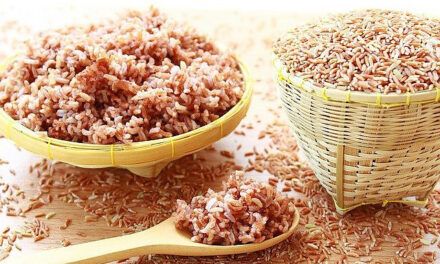If you have a low carb, high-fat diet like the ketogenic diet or if you are an athlete or bodybuilder, you may have heard about MCT oil. This oil has become popular because of the reports of its numerous benefits. However, Is MCT Oil Safe for Diabetics?
Before addressing the answer to that primary question that confirms the relationship between MCT oil and diabetes, many basic questions require answering.
You see, this man-made saturated fatty acid has been rumored to have a lot of benefits, such as
promoting weight loss,
boosting energy, and
improving cognitive function, to name a few.
Are all these reports false or real since a lot of us have been told that saturated fat is bad for our health?
Actually, what of MCT oil? What makes this oil special? And, is it safe for people with diabetes to consume this oil?
People with diabetes can safely consume this oil and enjoy all the benefits offered by this supplement. This superfood is so easy to include in your diet – not as a cooking oil since it has a low smoke point, but you can consume it directly or simply add it to your food or drink.
Since it is colorless, odorless, and tasteless, it will not change or affect the color or taste of your food or drink.
That all sounds nice, isn’t it?
However, the reality is not that simple.
To provide you with a good guide on MCT oil and diabetes, we must touch on the basics first.
Let’s start the journey…
So, what MCT oil really is?
What is MCT Oil?
MCT oil is also referred to as medium-chain fatty acids. It is a supplement or oil that is made of a type of saturated fat known as medium-chain triglycerides (MCT). It has a chemical structure that has between 6 to 12 carbon molecules.
As touched on earlier, MCT oil is tasteless and odorless, and depending on the type, they are either liquid,
semi-solid, or
solid at room temperature.
MCT is found naturally in coconut oil, palm oil, goat milk, human breast milk, and full-fat cow milk. Other sources of MCTs are yogurt, butter and some types of cheeses.
The molecules of MCT are smaller than those in long-chain triglycerides. This makes them easier to digest and quickly absorbed into the bloodstream than long-chain triglycerides (LCT).
MCT oil is not suitable for cooking because it has a very low smoke point, but it can be taken as a dietary supplement by incorporating it into drinks like coffee, smoothie
and food like salad.
What is In MCT Oil?
According to USDA, 100ml or 100g of MCT oil contains the below.
|
Nutrient |
Amount |
|
Energy |
800 kcal |
|
Protein |
0g |
|
Total fat |
93.33g |
|
Carbohydrate |
0g |
|
Sodium(Na) |
0mg |
|
Total saturated fatty acid |
86.67g |
|
Total trans fatty acid |
0g |
|
Cholesterol |
0mg |
Types of MCT Oil
MCT oil is usually extracted from coconut oil and palm kernel oil through the process of fractionation.
There are four types of MCT oil
- Caproic acid (hexanoic acid) – 6 carbon atoms
- Caprylic acid (octanoic acid) – 8 carbon atoms
- Capric acid (decanoic acid) – 10 carbon atoms
- Lauric acid (dodecanoic acid)– 12 carbon atoms
Generally, caprylic and capric acid are most commonly used for MCT oil.
They came as either 100% caprylic acid, 100% capric acid, or a combination of the two — 50-80% caprylic acid and 20-50% capric acid.
Caproic acid is hardly included because of its awful taste and odor.
Most experts do not include the fourth fatty acid, lauric acid, as MCT oil. They classify it under LCT because it takes longer to digest and is slower to absorb than other MCTs. And, many of the health benefits of MCT oils do not apply to Laurie acid.
Most MCT all contain little or no lauric acid.
The Difference Between MCT Oil and Other Fats
Aside from carbohydrates and protein, dietary fats are one of the macros and are essential nutrients. The brain, cell membranes, and nervous system are mostly made of fats, and to support the hormones (e.g. Insulin), we need to consume healthy fat.
Fats are made of molecules of fatty acids, which are chains of carbon and hydrogen atoms attached to each other. There are different types of fats, and differentiating one from another can be a bit confusing (so we wouldn’t do that here in detail).
Chemically, in summary, what differentiates one type of fat from the other is the length of the carbon chain:
- Short-chain fatty acids
They are fatty acids that have about 4 carbon atoms, E.g. butyrate.
- Medium-chain fatty acids
This type of fatty acid has 6 and 12 carbon atoms, E.g. caproic acid.
- Long-chain fatty acids
They have 14 or more carbon atoms, E.g. stearic acid.
The unique property that makes MCT oil different from other fats is the way the body breaks it down and converts it for use.
As stated earlier, fats are made of molecules of fatty acid, and the process of digestion of the fatty acid is determined by the length of its chain. The pancreas secretes bile and enzymes to help digest the different types of fat. After which, they an absorbed and transported to the liver.
Medium-chain triglycerides are faster and simpler to digest. They do not require any pancreatic enzymes or bile to digest. Instead, they are transported quickly to the liver, where they are converted into ketones and used as a quick source of energy.
Now, let’s turn on the food and products that contain MCT oil, with or without your knowledge.
Different Sources of MCT
- Coconut oil (55%)
- Palm kernel oil (53%)
- Coconut meat (37%)
- Coconut cream (20%)
- Coconut milk (14%)
- Butter (8%)
- Goat cheese (6%)
- Feta cheese (4%)
- Cream cheese (3%)
- Cheddar cheese (3%)
- Heavy cream (3%)
- Gouda cheese (3%)
- Gruyere cheese (3%)
- Parmesan cheese (3%)
- Swiss cheese (3%)
- Dry milk (2%)
- Mozzarella cheese (2%)
- Romano cheese (2%)
- White cheese (2%)
- Plain yogurt (0.3%)
Well, so what are the real health benefits of MCT oil?
Potential Health Benefits of MCT Oil
- Boost your energy
MCT is converted into ketones as a source of fuel for the brain cells. It also provides the body with an immediate source of energy.
- Promote weight loss and weight management
A 2015 study has shown that MCT oil can help to promote weight loss.
Another study carried out on overweight men also shows that MCTs increased the calories and fat they burned. And it concluded that MCT might help to stimulate weight loss and prevent obesity.
- Control appetite
Another study
also shows that compared to LCT, MCT oil may help to control appetite. MCT boosts the release of peptides YY and leptin. These are two hormones that can promote fullness in the body and modulate the hunger hormone commonly known as Ghrelin. This makes you eat less.
- Help cognition
MCT only could improve cognitive function moderately in patients with Alzheimer’s, diabetes, and hyperglycemia.
- Increase the metabolism of glucose in the body
Reduce blood sugar fluctuations and insulin sensitivity in type 2 diabetic patients
- Reduces the risk of cardiovascular disease
This is by increasing the good cholesterol in the body.
- Quick energy
MCT oil provides a quick burst of energy which can help to improve the performance of athletes and bodybuilders by reducing lactate buildup which, causes muscle fatigue during sports or exercise.
This is beneficial, and it helps them to exercise for longer.
Also, those working out to lose weight can speed up fat burning as it metabolizes stored fat instead of carbs for energy.
- Help epilepsy
It may help to ease seizures in kids with epilepsy.
- Have antimicrobial properties
Due to their antimicrobial property, MCTs can reduce bacterial and yeast growth.
It may help calm and treat skin infections.
According to a result of a study, adding MCT oil to baby formula can reduce the risk of infection caused by the fungus called Candida.
- Digestive support
Provide fat calories and energy for those who have a lipase or bile deficiency and have trouble digesting fats.
- Help diabetes
Reduce insulin resistance and increase HDL.
We will go into detail on MCT oil effect on blood sugar and diabetes shortly…
Does MCT Oil Lower Blood Sugar? What Does Research Say?
One of the problems faced by people with diabetes is the inability to balance their good sugar levels. This can result in to increase in cravings, continuous hunger, and causing energy crashes.
Consuming MCT oil, according to research, can help slow down the rate of digestion and gastric emptying, keeping you full for longer. This will eliminate your need to eat often and help stabilize your blood sugar level.
A study on a group of individuals grouped into two – healthy individuals and non-diabetic patients with insulin resistance showed that MCT oil could help regulate blood glucose levels. The result of the study suggests that MCT oil increases insulin-mediated glucose metabolism by 6% in a healthy individual and by 9% in non-diabetics with insulin resistance.
Is MCT Oil Safe for Diabetics? What Does Research Say?
It is believed that MCT oil can be of benefit to people with diabetes. It can help to improve the symptoms of diabetes.
A 2007 study carried out on 40 diabetic patients in China reveals that MCT oil can help in burning body fat, reducing fat storage, and lowering blood cholesterol which can help in managing diabetes.
The same study has also shown that MCT oil can help to improve insulin resistance which is another important factor in preventing and treating diabetes.
Some studies also suggest that MCT oil has blood glucose-lowering effects, making it useful for people with diabetes and those predisposed to pre-diabetes.
According to a small study, it has also been found that MCT oil can help prevent the reduction in cognitive performance commonly experienced during the periods of hypoglycemia (low blood sugar levels) in people with type 1 diabetes.
Does MCT Raise Insulin? What Does Research Say?
When our body breakdown fat, it makes ketones. This can help to lower your insulin level and help you to lose weight. This also applies to MCT oil.
When you consume MCT oil, it is transported directly to the liver, where it is metabolized into ketones. It is believed that this may help your body to get to the fat-burning stage faster.
It has been shown, according to studies, that MCT may help to improve insulin sensitivity in people with type 2 diabetes and reduce insulin resistance to a large extent.
A study carried out on10 non-insulin-dependent diabetes mellitus (NIDDM) patients, concluded that a diet containing MCT might increase insulin-mediated glucose metabolism in both diabetic patients and non-diabetic subjects.
Also, another study, indicates that replacing 50% of dietary fat with MCT oil improves insulin sensitivity in type 2 diabetics.
The Best Ways To Take MCT Oil For People With Diabetes
MCT oil is clear, tasteless, and odorless. It has a significantly low smoke point, so you cannot use it for cooking, but you can consume it by adding about ⅓ tablespoons to 3 tablespoons to your food or drinks.
Sine too much MCT can result in digestive distress, it is recommended that you start by taking ½ tablespoons to see how your digestive system reacts to it before increasing the quantity.
The best way for diabetics to use MCT oil and enjoy all its benefits are;
- Drizzle it on salad or grains, steamed vegetables, or soup.
- Mix with a smoothie or elemental diet shake.
- Add it to salad dressing or sauce.
- Take it as a supplement in capsule or oil form.
- Add it to your cup of tea or coffee.
While consuming MCT oil, always remember that this oil is still a liquid and saturated fat that is dense in calories. 1 tablespoon of MCT oil is about 100 calories.
MCT Oil With Coffee – Is It a Good Idea for Diabetics?
MCT oil can be added to your cup of coffee or used in preparing what most of us know as bulletproof coffee or keto coffee.
Bulletproof coffee is a good breakfast option for those that don’t have the time to prepare breakfast and need something to help.
It can;
- Boost your energy
- Help mental clarity
- Lose a few extra pounds.
Lots of researches have associated eating a healthy breakfast with better blood glucose management.
MCT oil with coffee may be good for people with diabetes. This is because bulletproof coffee is low in carbs which will help in managing the blood glucose levels and high fat. The fat which is from the MCT oil help to keep you satiated for a long time.
Also, aside from the wonderful taste of coffee, studies have shown that coffee can help to promote cognitive function and promote weight loss. But compared to a whole food breakfast, it may not be a very good idea for one to make bulletproof coffee daily as a breakfast because it is not nutritionally balanced.
When is The Best Time To Take MCT Oil?
MCT oil can be taken at any time of the day, and you can take it;
- In the mornings for weight loss, mental clarity, and focus
Add MCT oil to your morning tea or coffee or consume directly.
The MCT oil is converted to ketones which serve as a source of energy, make you feel full, helps to jump start your metabolism, and increase your ability to stay focus throughout the day.
- Before a workout as a quick source of energy
So, Instead of coffee that keeps you up or sugary drinks and snacks that mess with your hormones, you can substitute with MCT oil. The ketones produced from the MCT oil will boost your energy, feed your muscle cells, help you push through with your workout, and burn more calories.
- Take it before bed
Before bed to help you oxidize more fat as you sleep, reduce insulin spikes, and help you sleep better.
Remember, everything about MCT oil is not beautiful. Some people can experience the side effects of MCT oil.
Let’s turn on to them now…
What are The Possible Side Effects Of MCT Oil?
It is advisable to consult a dietitian on the right dose of MCT to consume. Consuming a large amount of MCT oil can cause digestive distress and make you feel unwell. That can result in;
- Stomach pain
- Hives
- Cramps
- Gas
- Bloating
- Vomiting
- Diarrhea
The Risks Of Consuming MCT
MCT oil is generally considered to be safe when it is used moderately. But you need to be careful when using it in the long term.
Some of the risks of consuming MCT oil over a long time include:
- It may result in weight gain as it contains a lot of calories
Although research has shown that MCT may help you to stay full for longer, it may also stimulate the release of Ghrelin and neuropeptide Y, which are hunger hormones in some people, encouraging them to overeat.
- It may elevate your blood cholesterol since it contains large amounts of saturated fat.
- Although MCT oil can help reduce total body fat and improve insulin resistance, taking it in large doses may increase fat in the liver.
Who Should Not Take MCT Oil?
The people that should use MCT with caution or avoid the use of MCT oil include:
- People with liver problems
Since MCT oil is metabolized through the liver and is likely to increase the fat in the liver.
People suffering from liver damage or liver disease like liver cirrhosis should avoid this supplement or use MCT with caution.
- Patients with uncontrolled diabetic ketoacidosis should avoid the use.
- Breastfeeding and expectant mothers should consult their doctors before taking MCT since there is no sufficient research on the effect of MCT oil on this group.
Conclusion
MCT oil is not just beneficial to those who practice keto dieting, sportsmen, and women. But it can also benefit those who want to lose weight to help manage other health conditions such as diabetes.
It will be a wonderful idea to have a bottle of MCT oil in your pantry for many. You can take it at any time of the day – in the morning, noon, or at night. MCT oil can help boost your energy, keep you satiated for longer, and help you to stay focus throughout the day.
Studies suggest and indicate that MCT can be used as a low-cost method to help people with diabetes control obesity, boost metabolism, lower blood sugar level, reduce insulin resistance and improve your blood cholesterol.
This oil is not just good for people with diabetes but also for those at high risk of diabetes.
However, MCT should only be taken orally as a supplement and not in place of your prescribed medication. Also, make sure to consult your doctor if you are on any medication or have any underlying ailment before using MCT oil.












